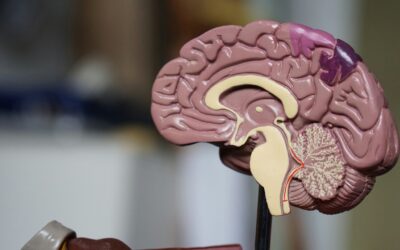Last updated: November, 2025
Supporting a partner in recovery can be one of the most profound and tender experiences in a relationship. Addiction reaches far beyond one person: it touches trust, communication, and emotional rhythm, often turning everyday life into a mix of love, fear, and uncertainty.
When recovery begins, both people are invited to heal. For many couples, this process is full of contrasts: moments of hope and exhaustion, love and frustration, closeness and distance. Yet, beneath it all lies a shared desire to reconnect and find peace again.
At Hacienda Paradiso, recovery is seen as a shared journey. Healing involves both partners learning to understand, support, and rediscover each other; step by step, without pressure or blame. This guide explores how couples can rebuild intimacy, set healthy boundaries, and grow together with patience and compassion.
Healing as a couple is not about perfection; it’s about presence. Every small act of kindness, every honest conversation, and every moment of understanding becomes part of the path toward trust, balance, and connection.
Why Understanding Addiction Matters in a Relationship
Before healing together, it’s important to understand what addiction truly is. Addiction is not a lack of love or willpower, it’s a brain-based condition that changes how a person feels, reacts, and connects.
Addictive substances or behaviours overwhelm the brain’s reward system, making ordinary joys (laughter, affection, shared meals) feel less rewarding. The person may begin to chase what gives temporary relief, even when it causes harm. Over time, natural balance is lost.
For the partner, this can feel like rejection or distance. But these changes are not about love fading; they are signs of a nervous system struggling to find calm. Recognising this turns anger into empathy and helps both partners move from fear to understanding.
When couples learn that addiction is a condition that reshapes the brain (not a moral failure), it opens space for compassion. Instead of asking “Why can’t you stop?”, the question becomes “How can we heal together?”
That shift in perspective changes everything. It transforms confrontation into connection and allows recovery to become a shared experience built on love and awareness.
How Addiction Affects Couples and Relationships
Addiction exists within the emotional space between two people. It can fill that space with silence, tension, or uncertainty, but it can also become the reason two people learn to communicate more deeply than ever before.
When one partner struggles, both feel it. The person facing addiction may carry guilt or shame; the other may feel helpless or angry. Daily life starts to revolve around coping, and both can begin to lose sight of themselves.
But this distance does not mean love has disappeared. It means both hearts are tired and looking for safety again. Healing begins when both recognise they are on the same side.
Emotional Distance and Miscommunication
Addiction often brings emotional noise: raised voices, silences, and misunderstandings. One partner may withdraw out of fear, while the other tries to fix what feels broken. Conversations can turn defensive, or stop altogether.
Rebuilding communication means slowing down. It means listening to understand rather than to reply. It means remembering that both people are hurting, and both want things to get better.
Gentle curiosity (“What’s been hardest for you today?”) can reopen dialogue. Even brief moments of understanding begin to soften walls built by fear.
Rebuilding Trust and Stability
Addiction shakes the foundations of trust. Promises may have been broken, emotions hidden, or actions misunderstood. Rebuilding that trust takes time and kindness.
It starts with small, steady actions: honesty, presence, and consistency. Trust grows when words and actions align, when boundaries are respected, and when both partners allow space for imperfection.
Each time both choose openness over avoidance, the relationship heals a little more.

Managing Intimacy and Connection During Recovery
Addiction and recovery can deeply affect closeness. Emotions in early recovery swing between hope and fatigue, calm and anxiety. Some days, affection feels natural; others, it feels distant or forced. That is normal. Healing takes time, and so does rediscovering comfort with intimacy.
Emotional Check-ins and Communication
Simple, genuine connection matters more than perfect words. A quiet “How are you feeling today?” or a shared cup of coffee in silence can mean everything. These daily check-ins create safety: reminders that, even in chaos, the relationship still exists.
Listening with empathy, without trying to fix, allows vulnerability to feel safe again. Validation (“I see that this is hard for you”) helps both partners breathe easier.
Redefining Intimacy
Intimacy is not only physical. It is also emotional presence: holding hands, cooking together, laughing, or simply being near each other without needing to speak.
During recovery, sexual closeness may change. The focus shifts from performance to connection, from desire to tenderness. Small gestures of affection (a touch, a glance, shared laughter) slowly rebuild trust and remind both partners that love remains beneath the healing.
Building Connection Through Shared Activities
Recovery is also about creating new, healthy experiences together. Walking in nature, practicing mindfulness, gardening, or listening to music can bring calm and reconnection. These shared moments rewire the brain’s reward system in gentle, healing ways.
Connection returns not by forcing it, but by allowing it by noticing the quiet moments where both hearts begin to rest again.
Recognising and Avoiding Codependency
Codependency often hides behind love. It begins as care but can slowly become control or overprotection. When one partner’s emotional balance depends entirely on the other, both lose their sense of peace.
Understanding Codependent Patterns
In a codependent dynamic, one partner might feel responsible for the other’s emotions, constantly checking or rescuing. Over time, exhaustion replaces connection. The relationship becomes about survival, not growth.
Healing starts by remembering that love is not control; it’s presence. Supporting recovery with your partner, not for them, allows both people to share responsibility and regain their independence.
Setting Healthy Boundaries
Boundaries are a form of love. They create space for honesty and self-respect. Saying “no” to enabling behaviour (like covering for mistakes or avoiding hard conversations) is an act of care.
Taking time for personal rest, friends, or hobbies is not selfish; it is necessary. When both people care for themselves, they can meet each other with more calm and strength.
Encouraging Responsibility and Independence
Recovery flourishes when each person takes ownership of their choices. Encouraging independence builds confidence and mutual respect. It’s not about doing everything right, it’s about trying again with awareness.
When both partners learn to hold themselves gently, the relationship becomes a place of safety instead of stress.

Strategies for Mutual Support and Growth
Healing together means learning, listening, and growing side by side. It’s not a linear process — it’s a rhythm that shifts, softens, and strengthens over time.
Couples Therapy and Guided Communication
Professional therapy gives couples a space to talk honestly, with guidance and compassion. It helps both partners communicate without blame, express needs clearly, and rediscover empathy.
Often, therapy reveals patterns that existed long before addiction: old hurts, unspoken fears, or unmet needs. Working through them together strengthens understanding and brings closeness back into focus.
Shared Recovery Practices
Shared routines bring stability and calm. Activities like mindfulness, journaling, gentle exercise, or evening walks help manage stress and nurture presence. Preparing a meal together or ending the day with gratitude strengthens teamwork and trust.
Healing happens in everyday choices. The more couples weave care into daily life, the more natural recovery becomes.
Balancing Togetherness and Individual Growth
A healthy relationship allows space for reflection, friendships, creativity, and rest. Supporting each other also means encouraging individuality.
Recovery is not about merging into one; it’s about standing side by side, whole and connected. Love grows stronger when both people have room to breathe and discover who they are beyond the struggle.
Navigating Setbacks and Emotional Challenges
Recovery is full of turning points: moments of progress, moments of doubt. Every couple faces challenges; what matters most is how they face them together.
Responding to Relapse or Emotional Regression
Relapse or emotional regression does not erase progress. It’s often part of the process of learning stability. What helps is calm communication: asking what happened, what triggered it, and what support feels right now.
Blame closes doors. Understanding opens them. Each compassionate response teaches the brain (and the heart) that it’s safe to try again.
Creating a Crisis Plan Together
Having a simple plan helps reduce fear when emotions run high. Couples can agree on steps to stay grounded: calling a therapist, stepping outside, or taking a break before continuing a conversation.
Knowing there’s a plan turns panic into purpose. It says: “We’re prepared, and we can handle this together.”
Maintaining Empathy and Boundaries
Empathy connects, boundaries protect; both are necessary. Supporting a partner in recovery means standing beside them, not inside their storm.
When tension rises, a deep breath, a gentle tone, or a pause before reacting can change everything. Choosing calm over chaos builds trust. Each time both partners do this, healing becomes more natural, more stable.
Building a Healthy, Long-Term Relationship After Recovery
Long-term recovery is not about returning to “how things were.” It’s about creating a new way of being together: one grounded in respect, trust, and calm.
Rebuilding Trust and Intimacy
Trust returns slowly through honesty and consistency. Small gestures (keeping promises, showing up, speaking openly) create new layers of safety.
As trust rebuilds, affection and tenderness return naturally. Intimacy becomes less about expectation and more about comfort: the kind of closeness that grows from mutual respect and peace.
Continuing Growth and Shared Goals
Healing doesn’t end when treatment does. Setting shared goals (building stability, exploring creativity, or nurturing family life) gives couples purpose and unity.
Therapy, support groups, or mindfulness practices can keep communication strong and prevent distance from returning. Recovery becomes part of everyday living, a rhythm of awareness and care.
Sustaining Emotional Balance Over Time
Recovery, like love, evolves. Stress, change, and daily pressures will still appear, but couples who stay connected through open dialogue and gentle check-ins adapt with resilience.
Moments of joy, quiet dinners, laughter, or shared stillness become reminders of how far they’ve come. Healing is no longer about fixing what broke; it’s about tending to what now grows.
For many couples, this stage feels like rediscovery: seeing each other with new eyes, built on truth, patience, and renewed hope.

Finding Guidance in a Supportive Environment
Recovery as a couple is intimate and deeply human. It often needs the right surroundings; a safe space where understanding and calm can grow.
At Hacienda Paradiso, recovery unfolds in connection with nature and gentle structure. Couples find guidance through therapy, mindfulness, and shared experiences that restore balance to both body and mind.
Set in the serene landscape of Málaga, surrounded by nature and peace, Hacienda Paradiso offers the space to slow down, listen, and rebuild trust. It is a place where couples can breathe again; where healing feels possible, and love feels safe.
Frequently Asked Questions: Couples and Addiction
Yes, many relationships not only survive addiction but become stronger through recovery. Healing together often reveals deeper honesty, patience, and emotional connection. Recovery gives both partners the opportunity to rebuild trust and rediscover love in a more authentic way.
While addiction can create distance, recovery teaches communication, self-awareness, and forgiveness. Couples who approach the process as a shared journey — rather than one person’s responsibility — tend to develop resilience and empathy that strengthen their bond. Therapy, structure, and time are key elements. Progress may feel slow, but every honest conversation and moment of support rebuilds connection. With compassion and consistency, relationships can move from survival to genuine partnership.
The most effective way to support your partner is by caring for yourself, too. Healthy support balances empathy with boundaries. It means standing beside your partner, not carrying their recovery on your shoulders.
Self-care — maintaining friendships, exercising, spending quiet time alone — keeps your energy stable and prevents burnout. Setting limits around enabling behaviours (like covering up relapses or avoiding hard conversations) allows both partners to grow responsibly. Remember: boundaries are acts of love. When you protect your emotional balance, you model stability and show your partner what healthy connection looks like. Support is not about control, it’s about presence — walking together at a sustainable pace.
A relationship may be codependent when one partner’s mood or self-worth depends entirely on the other’s wellbeing. If you find yourself constantly rescuing, fixing, or sacrificing your own needs to keep peace, codependency may be at play.
Codependent patterns can feel like love at first — checking, helping, and reassuring — but over time, they create exhaustion and imbalance. The supporting partner may begin to feel resentful or anxious, while the other may lose a sense of autonomy. Healing starts with awareness: recognising that love thrives on respect, not control. Therapy or support groups can help identify these patterns and rebuild healthier dynamics. Love can remain strong when both people learn to care for themselves as well as each other.
Trust returns gradually, through honesty, consistency, and small, reliable actions. It’s not rebuilt with promises but with presence — showing up emotionally, communicating openly, and following through over time.
After addiction, both partners may carry fear of disappointment. Transparency helps calm that fear: talking about triggers, goals, and daily challenges builds mutual understanding. It’s also important to recognise effort, not just outcomes. Acknowledging small steps — a week of honesty, attending therapy, managing emotions calmly — reinforces hope and commitment. Over time, trust becomes less about words and more about shared experience. Patience and forgiveness are essential; healing trust is not a single event, but a process of rediscovery.
Couples should consider professional support when communication feels impossible, tension grows, or the relationship becomes emotionally draining. Therapy is not a sign of failure — it’s a space for safety, guidance, and healing.
An experienced therapist can help both partners express emotions without judgment, uncover hidden patterns, and build new ways of relating. Therapy is especially valuable during early recovery, when both people are adjusting to new routines and emotional realities. At Hacienda Paradiso, couples therapy integrates emotional awareness, mindfulness, and nature-based experiences to rebuild calm and connection. Seeking help early prevents crises from deepening and gives couples the tools to turn conflict into collaboration. Reaching out for guidance is an act of love — one that protects the relationship and supports lasting recovery.









